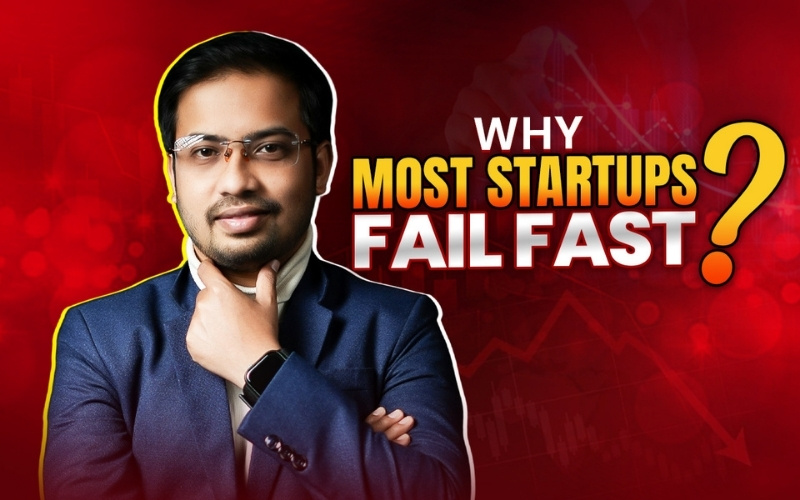Why Most Startups Fail Fast (And How to Make Yours Thrive)
Starting a business is exciting, but it’s also risky. According to the U.S. Bureau of Labor Statistics (2023), around 20% of startups fail in their first year, and nearly 50% close by year five. These numbers aren’t just stats—they’re wake-up calls.
So why do so many startups crash and burn? And more importantly, what can you do to make sure yours doesn’t?
In this guide, we’ll break down the most common startup failure reasons—and how you can avoid them.
1. Poor Product-Market Fit: Building What Nobody Wants
Problem: 35% of startups fail because there’s no real market need (CB Insights). Many founders get emotionally attached to their ideas and skip the most important step—validation.
What to Do:
- Talk to your target audience before building.
- Launch a minimum viable product (MVP).
- Use surveys, interviews, and beta users to collect feedback.
- Be ready to pivot based on real needs—not assumptions.
Pro Tip: Great businesses solve painful problems that people are willing to pay to fix.
2. Running Out of Money: The Cash Flow Crisis
Problem: Underestimating how much capital is needed is a major startup killer. Many founders hit the “valley of death”—burning cash before hitting sustainable revenue.
What to Do:
- Create realistic financial projections.
- Keep your burn rate low.
- Monitor cash flow weekly.
- Explore funding options beyond VC: loans, grants, bootstrapping, and partnerships.
Remember: Growth is good, but profitability is what keeps your startup alive.
3. Weak Team and Leadership Gaps
Problem: 23% of startups fail due to team issues (Startup Genome). Founder conflicts, poor hiring, and lack of leadership experience can derail even the best ideas.
What to Do:
- Hire people who complement—not duplicate—your skills.
- Set clear roles and responsibilities.
- Build a culture of transparency and accountability.
- Seek mentorship or advisory support early on.
Strong teams build strong companies.
4. Ignoring Customer Feedback and Market Changes
Problem: Markets change fast. If you’re not listening to customers or tracking industry shifts, your product could become irrelevant overnight.
What to Do:
- Set up regular feedback loops (surveys, interviews, user analytics).
- Watch what competitors are doing.
- Stay active in your industry’s communities.
- Be flexible—pivot when needed.
Customer-focused startups are 60% more profitable (McKinsey).
5. Flawed Business Model and Pricing Strategy
Problem: A great product with the wrong pricing or business model can still fail. Undervaluing your product or spending too much to acquire customers will drain your business.
What to Do:
- Understand your unit economics.
- Test different pricing tiers.
- Avoid unsustainable discounting.
- Track customer lifetime value (LTV) vs. acquisition cost (CAC).
Sustainable business models beat growth-at-all-costs every time.
6. Premature Scaling: Growing Too Fast, Too Soon
Problem: 70% of startups that scale too early fail (Startup Genome). Growth before readiness magnifies problems.
What to Do:
- Don’t scale until you’ve achieved product-market fit.
- Build repeatable sales and onboarding systems.
- Validate your market before expanding.
- Scale in stages—not all at once.
Controlled growth beats chaotic expansion.
Turn Insight Into Action
Startups don’t fail because of bad luck. They fail because of avoidable mistakes.
The good news? You can learn from those who came before you. Be intentional. Validate your product. Build a strong team. Stay close to your customers. Watch your cash. And most importantly, stay humble and adaptable.
Frequently Asked Questions
What is the biggest reason startups fail?
Lack of product-market fit—building something nobody wants.
How can startups avoid failure?
Validate your idea early, manage finances well, listen to your users, and grow only when ready.
When is the right time to scale a startup?
After you’ve confirmed product-market fit, have steady revenue, and systems to support growth.
Ready to Build Smarter?
If you’re navigating these challenges and want guidance, let’s talk. IMBD Agency helps startups grow with strategic advice, digital transformation, and AI-powered solutions. Book a free consultation today.



